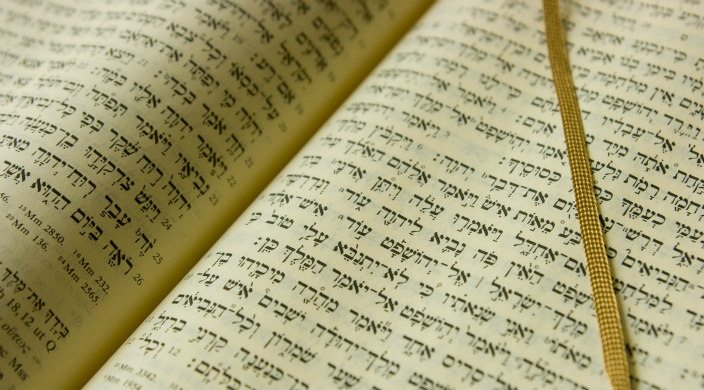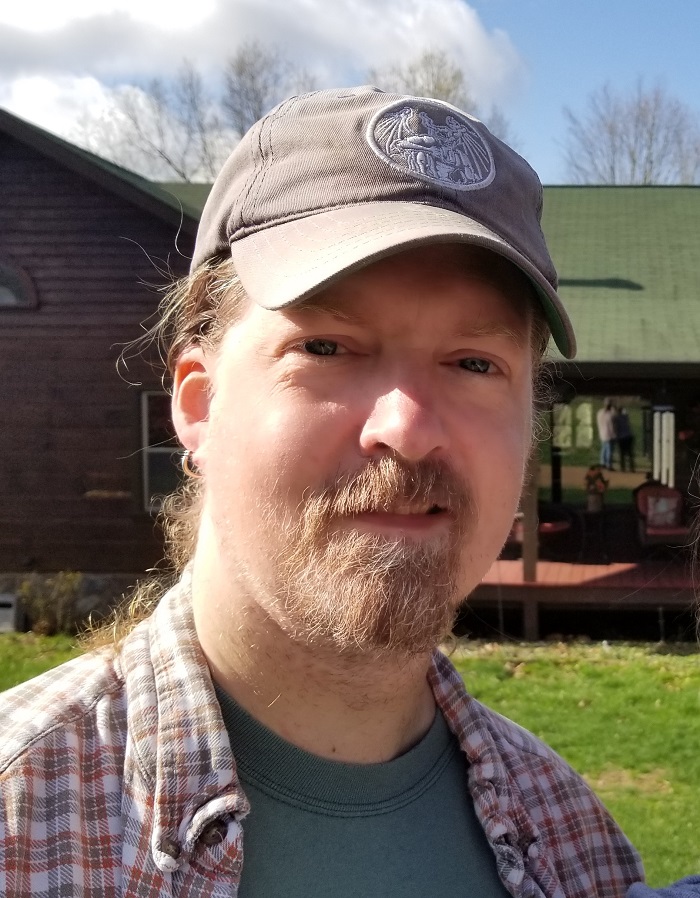
I haven’t always been a non-believer. For the first 18 years of my life, I was a fundamentalist Christian. It wasn’t until I attended college that I began to rethink, expand, and ultimately replace many of my core beliefs. As a result, I left behind my Christianity and began a journey from believer to non-believer. This wasn’t by any means a quick transition; it took many years, much thought, and several tough conversations, but eventually I became comfortable calling myself a freethinker and an atheist.
I would have remained an unaffiliated atheist had I not fallen in love with a Jewish woman. As part of my commitment to her, I agreed that we would have a Jewish home. We began to create this together, but for our first few years, we were not part of a Jewish community. And then, in a sermon one Rosh HaShanah, I heard Rabbi Mark Shapiro state that one does not have to believe in God to be a Jew. I knew there were secular Jews, but this felt different. Here was a religious leader in a religious setting telling the congregation that belief in God wasn’t a requirement for being a member not only of the tribe, but also of that community. This single statement had a profound impact on my life and opened the door to what became my Jewish home where I developed my Jewish identity.
However, the requirements for being a Jew traditionally have differed from the requirements for becoming a Jew. Conversion typically includes a profession of faith in God. Mostly because of this, even though I had been an active member of my synagogue for many years, I never considered converting until my wife told me about an impromptu conversation she had with Rabbi Karyn Kedar on the topic. As a result of that conversation, I learned it was possible for me to convert as a non-believer.
My conversion path involved many hours of struggling with how to articulate a Judaism that harmonized with my non-belief. I finally arrived at an idea of sacredness that does not require a heavenly edict but is instead the product of people’s intentional actions. The first verse of Pirkei Avot, a work from the 2nd century CE containing the ethical insights of the rabbinical Jewish tradition, says that we should “make a fence around the Torah.” Whether or not the Torah is of Divine origin, it is this fence, lovingly constructed and sustained by Jews over the centuries, that sets the Torah apart and makes it sacred.
In the Shabbat service that culminated my conversion, Rabbi Kedar gave me a Torah to hold, and I recited the words of the . In preparing for the occasion, I struggled with how I might reconcile this action with my non-belief. I thought: “I will have just told everyone that I don’t believe in God, and the next thing I will do is make a declaration of the oneness of God. How is that not contradictory?”
Then, as I reflected on the sages admonishing the Jews to make a fence around the Torah, I was struck by another question: How is the convert, who is presumably outside the fence, able to approach the Torah? And suddenly I realized: the Sh’ma makes a gate in that fence. The words of the prayer grant access to the Torah because they offer a way for the convert to embrace the tradition and declare their intent to be counted as a Jew. So when the moment came, I grasped the Torah and recited the words of the Sh’ma, not as a testament of faith but as a request for admittance and an acknowledgement of the tradition that I was seeking to join.
Judaism is a religion, but it is also a practice. I choose to practice my Judaism by expressing my love for the Jewish people and my becoming one of them. I practice by immersing myself in Jewish wisdom and participating in the conversation of Jewish philosophy. I practice by seeking to live by the Jewish virtues of pursuing justice, doing welcoming the stranger, and not standing idly by. I practice by keeping Jewish traditions in my home and teaching them to my child. And so, in place of a declaration of faith, I have made a declaration of love and fidelity – to the Jewish people, Jewish wisdom, Jewish values, and Jewish traditions.
I want to leave this world better than I found it. I want to learn to number my days so that I may obtain a heart of wisdom. I want to strive to be my best possible self. In Judaism, I have found a way to bring meaning and purpose to my time, and I am honored to be counted as a Jew.
Learn more about Introduction to Judaism and Taste of Judaism classes and find one in your area.
Related Posts

Funny, You Don’t Look...

Spicing up my Hispanic Heritage and Embracing Sephardic Traditions


